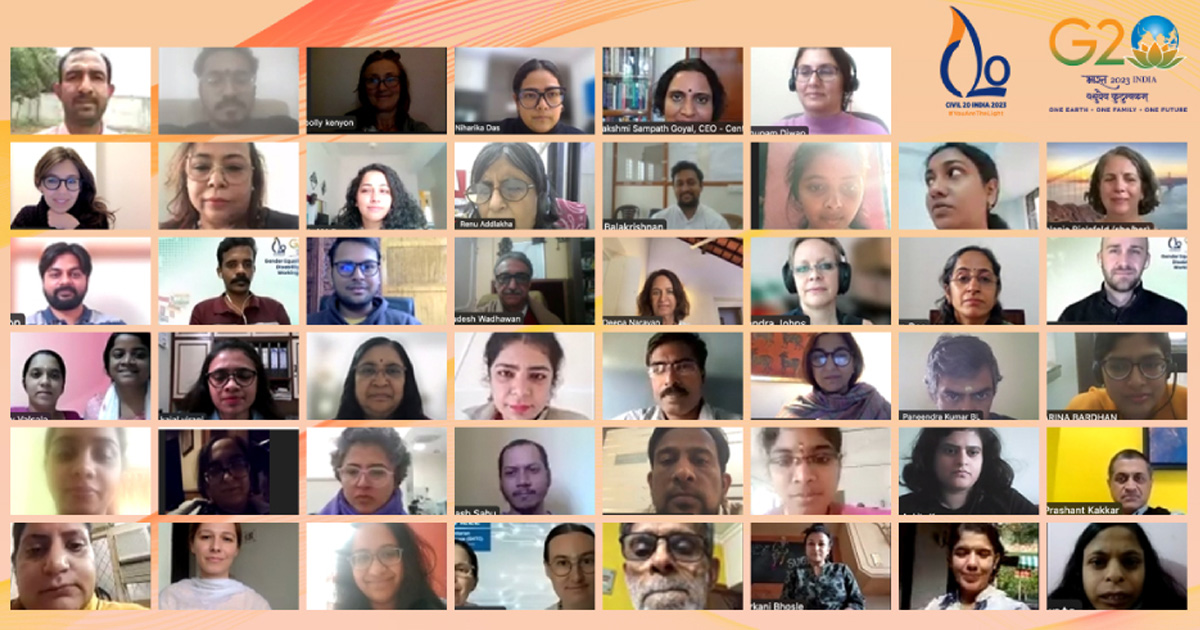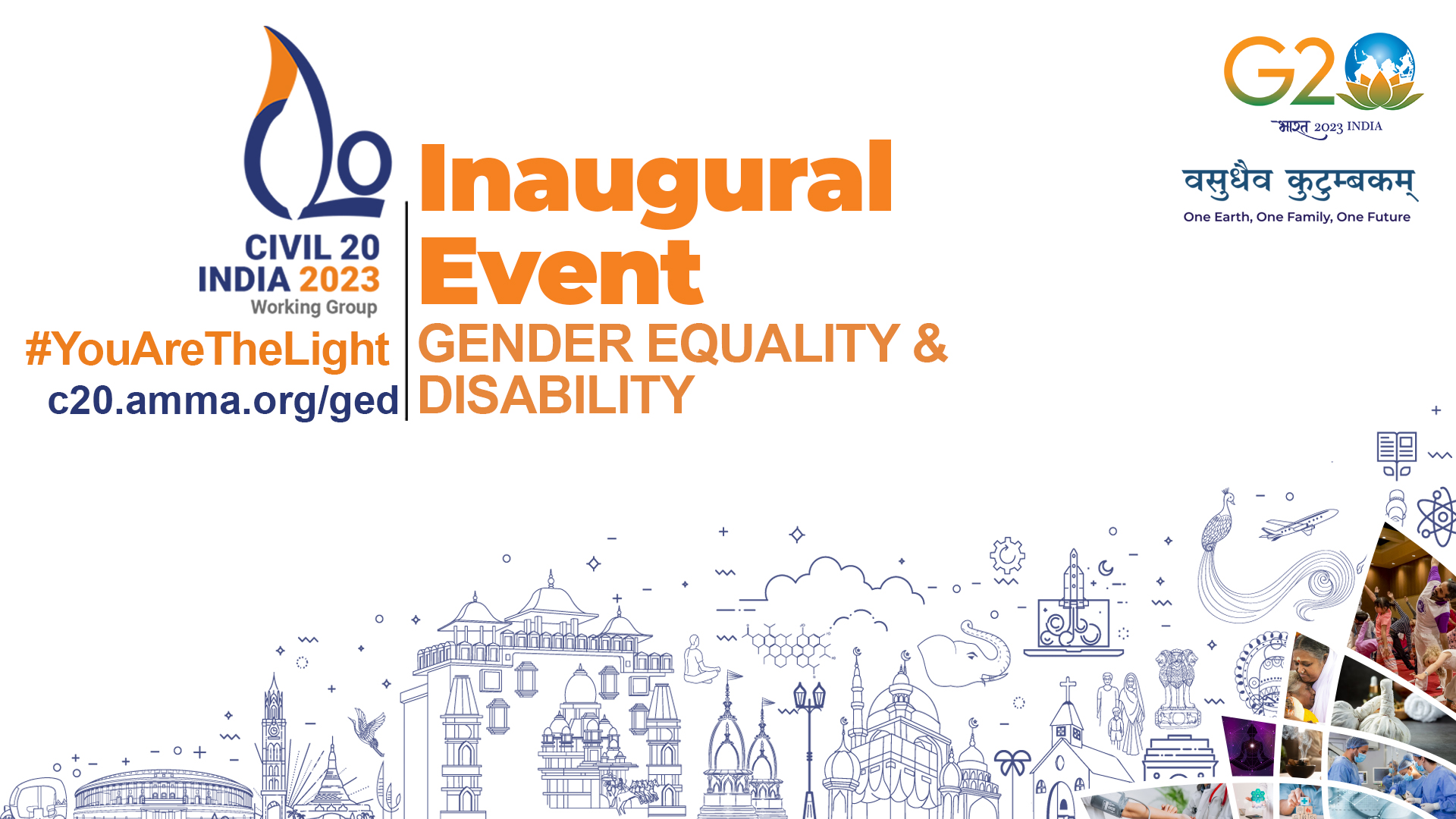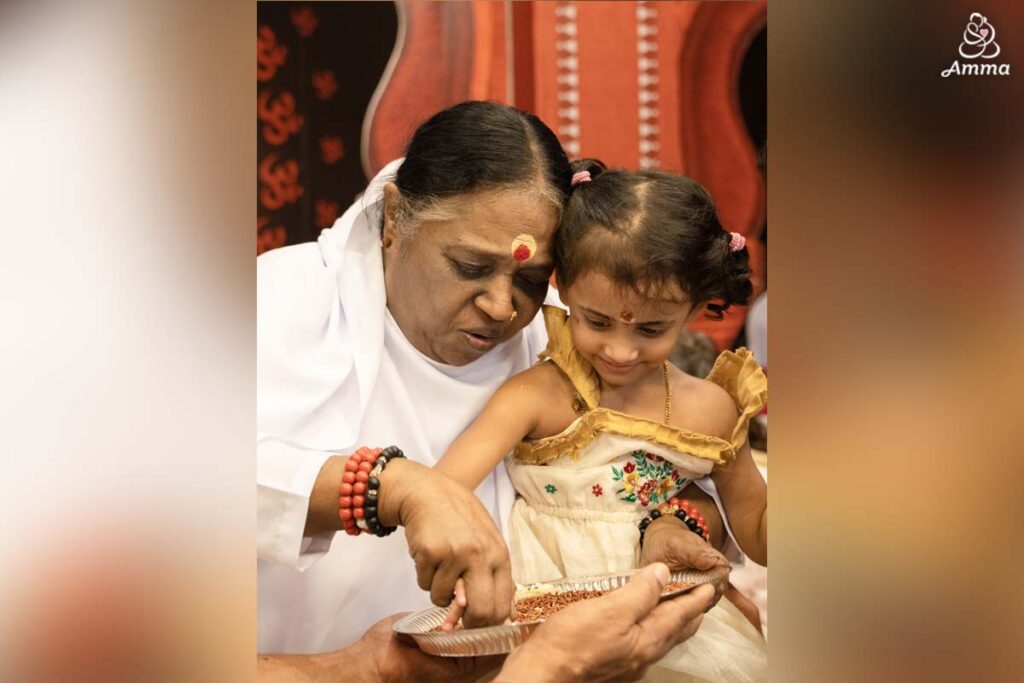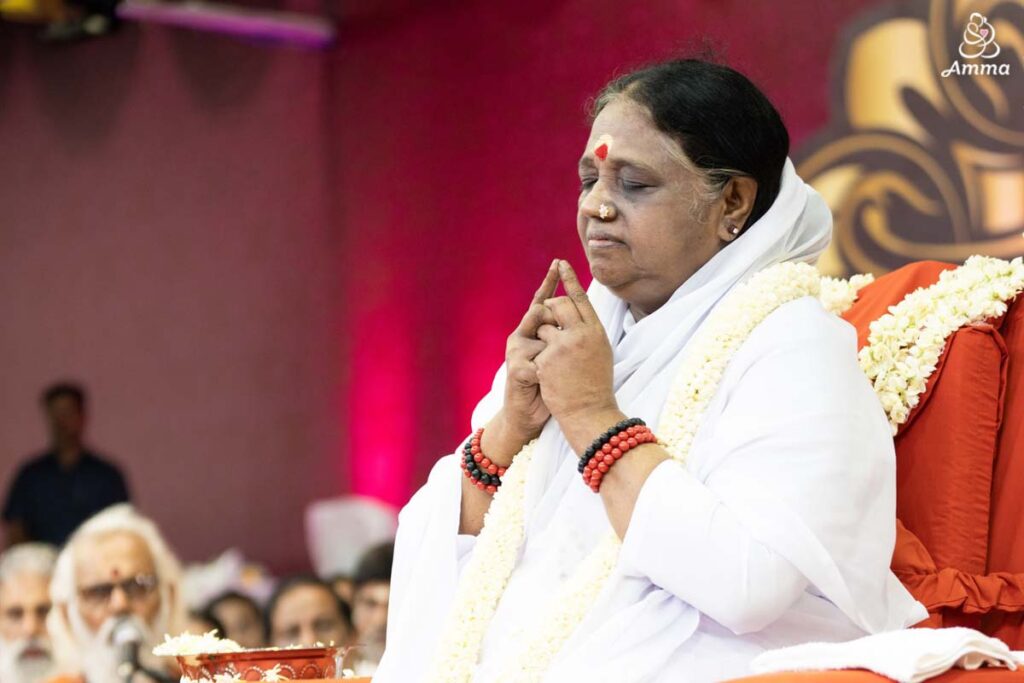The Civil 20 Working Group on Gender Equality and Disability (GED) marked a momentous start to a series of meetings and policy dialogues aimed at bringing gender equality and disability inclusion to the forefront of the G20 global forum. The inaugural event was a virtual gathering hosted by Amrita University on February 2 with 484 people from 26 countries and 13 states across India taking part.
In her opening address, Dr. Bhavani Rao, an India Co-Coordinator and Amrita’s UNESCO Chair on Women’s Empowerment & Gender Equality, said: “As C20 Chair, Amma is herself a mind-blowing example of one woman’s capacity to reach across international borders, cultures, languages, and religions. She is a light and inspires others to be the light.”
“This is an auspicious occasion,” said Amma about the Civil 20. “We have embarked on a mission to restore the dwindling light of the world. May the ethos of vasudhaiva kuṭuṁbakam— ‘The world is one family’ —awaken, be put into practice and bear fruit in everyone.”
Distinguished speakers such as Swami Amritaswarupananda Puri, Representative of Amma as C20 Chair, and Ambassador Sri Vijay Nambiar, C20 Sherpa, also addressed the gathering.
“A shift in the current attitudes that perpetuate gender inequality can bring about the change we need to see,” said Swamiji. “Men and women must work together to create a world of acceptance, recognition and respect. Let us keep moving forward towards this goal.”
Ambassador Sri Vijay Nambiar, C20 Sherpa, also shared inspiring words about how policy dialogues are an important piece of the G20 forum: “Through these C20 policy dialogues, may we embrace a wider perspective that celebrates the bounties of nature and the world around us in a spirit of unity and respect amongst each other.”
In addition to Dr. Rao, the Coordinators of the Working Group include Meg Jones, International Coordinator, Amrita University; and Nidhi Goyal, India Co-Coordinator, Rising Flame. They shared a detailed structure of the Working Group, subthemes, timeline, and how organizations can participate and effect change.
“Our GED working group is shaped by a diverse and strong collective that shares the same ideal to bring social justice issues under gender equality and disability inclusion to the forefront of the G20 forum,” said Goyal.

In the lead-up to India’s G20 summit, policy recommendations will be developed through a series of dialogues with hundreds of Civil Society Organizations (CSOs) facilitated by GED. The policy dialogues will focus on these sub-themes: Physical & Mental Health; Economic Empowerment & Sustainable Livelihoods; Education & Skill Development; Safety & Security; Environment & Disasters; Society & Culture; Engaging Men and Boys; and Disability.
“Civil Society is the loudest voice for calling upon the government to change. Our work is a commitment to ensure that policy follows a cycle where it is adopted, implemented, monitored, and evaluated,” said Jones.
The event was also attended by several influential guests including Dr. Sandhya Purecha, Chair of G20’s Women 20, Suyash Pande from the Youth 20 Engagement Group, Core Members of Civil 20, and representatives of Vivekananda Kendra and the Satsang Foundation.
In addition to this, hundreds of CSOs from around the world, UNESCO representatives from India and Europe, and experts including the Gender-Related UNESCO Chair from Kenya, also participated.
The Gender Equality and Disability (GED) Working Group is committed to holistically examining and addressing the multifaceted dimensions of inequalities and disadvantages experienced by the genders and all people with physical and/or mental disabilities.
“Fortunately, under the strong leadership of Amma and the leadership of the Government of India, we have a very strong leadership for the GED deliberations this year. And through the hands of Mr. Nambiar we will take our work to the broader G20 dialogue,” said Jones.
The GED Working Group will deliberate on issues such as access to education, healthcare, income and environmental resources; decent work; infrastructure and decision-making; systemic issues such as discrimination based on gender or ability; gender-based violence; lack of representation; and economic disparities. The working group ensures inclusivity by providing sign language interpreters for events and auto-captions for people with hearing disabilities.





